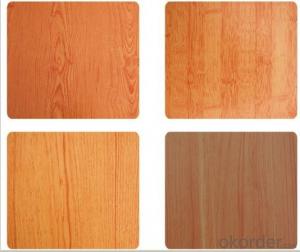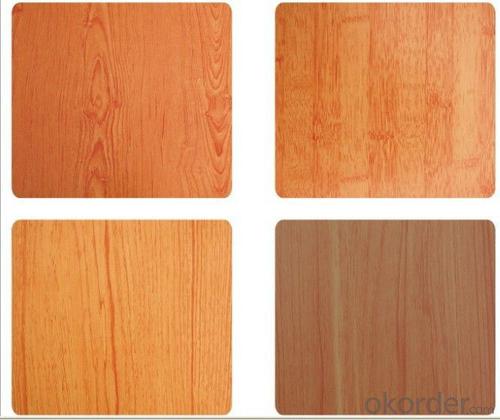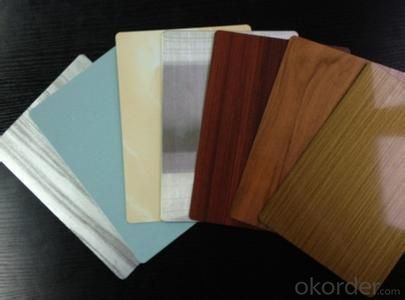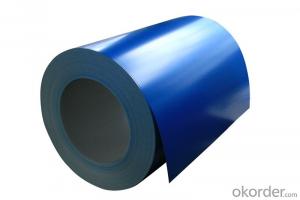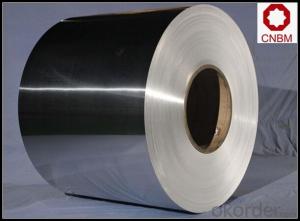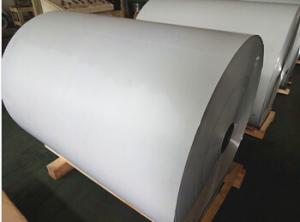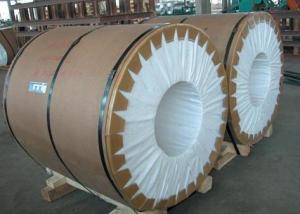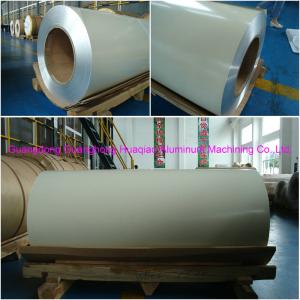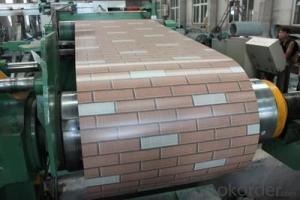High Quality PE Color Coating Coil Aluminum Stock
- Loading Port:
- Shanghai
- Payment Terms:
- TT OR LC
- Min Order Qty:
- 5 m.t.
- Supply Capability:
- 10000 m.t./month
OKorder Service Pledge
OKorder Financial Service
You Might Also Like
Specification
1. Specification of PE Color Coating Aluminum Coil with High Quality
Material | Alloy Aluminum 6063,6061,6005 or customer nominated |
Temper | T3, T4, T5, T6 |
Surface | Anodize, electrophoresis, powder coating, PVDF coating, wood grain painting, matted, etc. |
Colour | Any colour based on Standard Germany RAL Mark |
Length | Coating 6.5 meters, Anodizing 6.5 meters, Mill finish 5 meters |
Press Machine | 500-4000 tons all together 64 press lines. |
Fabrication | 1. Windows and doors; 2. Drilling; 3. Bending; 4. Cutting; 5. etc. |
Certificate | ISO 9001 |
Moulding | 1. Using our moulds, no fee; |
2. Using customer drawing, opening mould, usually about 10~50 tons then the moulding can be refunded. | |
3. Mould cost is negotiable base on the order quantity | |
Capability | Annual output 100,000 tons |
2. Application of PE Color Coating Aluminum Coil with High Quality
(1).Interior: wall cladding, ceilings, bathrooms, kitchens and balconies, shutters, doors...
(2).Exterior: wall cladding, facades, roofing, canopies, tunnels,column covers , renovations...
(3).Advertisement: display platforms, signboards, fascia, shop fronts...
3. Feature of PE Color Coating Aluminum Coil with High Quality
*Such coil is specially designed to replace aluminum ingot, due to the high export tax of aluminum ingot, the coil has better price than ingot.
*This type of coil can fit customer's remelting furnace just like ingot, no need to make any change to the production line that was previously used for ingot. The standard coil size and weight is very suitable for the feed gate of furnace.
*This type of coil causes less material wastage than ingot when remelted.
*Our coil is made directly from ore, no need to go though the ingot making process, quality is much better than other suppliers who use ingot scrap to make coil.
Be free from Oil Stain, Dent, Inclusion, Scratches, Stain, Oxide Dicoloration, Breaks, Corrosion, Roll Marks, Dirt Streaks and other defect which will interfere with use
4. Certificate:
SGS and ROHS(if client request, paid by client), MTC(plant provided), Certificate of Origin(FORM A, FORM E, CO), Bureau Veritas and SGS (if client request, paid by client), CIQS certificate
5. Image of PE Color Coating Aluminum Coil with High Quality
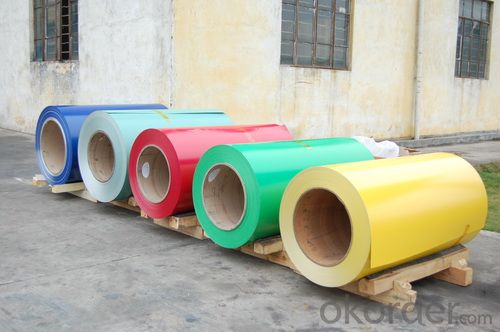
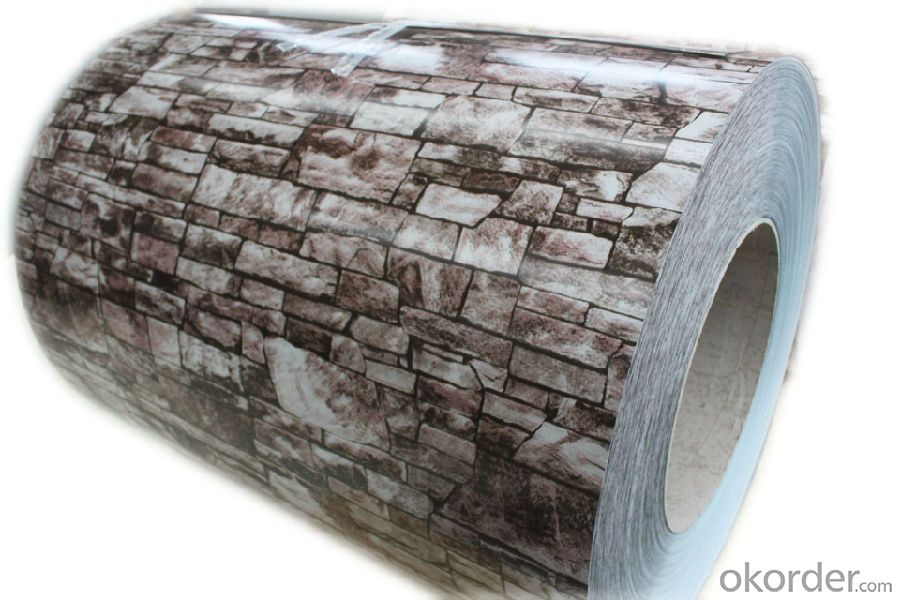
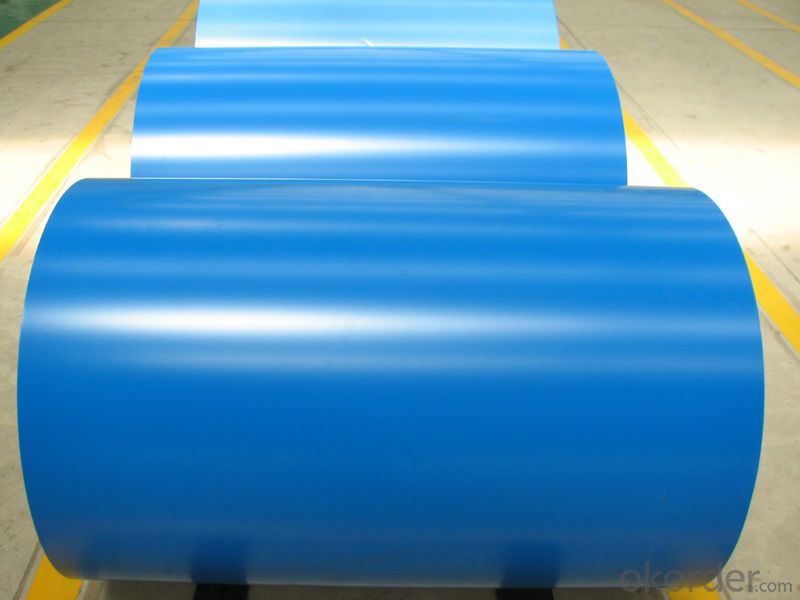
6. Package and shipping of PE Color Coating Aluminum Coil with High Quality
eye to wall
eye to the wall
with wood pallet (wooded case also available)
7. FAQ
1) What is the delivery time?
Dpends on actual order, around 20 to 35 days
2)What is the QC system:
We have QC staff of 20 persons and advanced equipment, each production is with MTC traced from Aluminum ingot lot.
3) What market do you mainly sell to?
Australia, America, Asia, Middle East, Western Europe, Africa etc
- Q: How do aluminum coils contribute to sustainability efforts?
- Aluminum coils play a significant role in sustainability efforts due to their numerous environmental benefits. Firstly, aluminum is a highly recyclable material, with almost 75% of all aluminum ever produced still in use today. This means that aluminum coils can be recycled and reused indefinitely without losing their original properties, resulting in significant energy savings and reduced greenhouse gas emissions compared to producing new aluminum. Furthermore, the recycling process of aluminum coils requires only 5% of the energy needed to produce new aluminum from raw materials. This energy efficiency not only saves valuable resources but also reduces the extraction and processing of bauxite ore, the primary source of aluminum, which can have detrimental effects on the environment. Additionally, aluminum coils are lightweight yet durable, making them an ideal choice for various applications in industries such as automotive, construction, and packaging. Their lightness reduces fuel consumption in transportation, leading to lower carbon emissions. Moreover, their durability ensures a longer lifespan, reducing the need for frequent replacements and thus minimizing waste generation. The use of aluminum coils also contributes to sustainable building practices. Aluminum is corrosion-resistant, making it suitable for exterior applications and reducing maintenance requirements. Moreover, it can be easily integrated into energy-efficient building systems, such as reflective roofing, which helps to reduce energy consumption and mitigate the urban heat island effect. In summary, aluminum coils contribute to sustainability efforts by being highly recyclable, energy-efficient in production and recycling, lightweight to reduce fuel consumption, durable to minimize waste, and suitable for various sustainable applications. By choosing aluminum coils, industries and individuals can actively participate in promoting a circular economy and reducing their environmental footprint.
- Q: How are aluminum coils used in the production of transportation vehicles?
- Aluminum coils play a vital role in manufacturing transportation vehicles, especially cars and planes. These coils are typically made from high-quality aluminum alloys because they are lightweight, strong, and resistant to corrosion. In the automobile industry, aluminum coils are primarily used to build vehicle bodies, including the frame, doors, hoods, and trunk lids. The lightweight nature of aluminum helps reduce fuel consumption and improve energy efficiency. This makes it a preferred choice for vehicle manufacturers who want to meet environmental regulations and improve fuel economy. Aircraft manufacturing also relies on aluminum coils to reduce weight and ensure optimal flight performance. By incorporating aluminum coils into key components like fuselages, wings, and engine parts, aircraft manufacturers can save a significant amount of weight without compromising structural integrity and durability. The use of aluminum coils in transportation vehicles also contributes to improved safety standards. Aluminum's ability to absorb crash energy makes it an ideal material for manufacturing impact-absorbing structures, such as bumpers and crash boxes in cars. This provides enhanced protection for passengers during collisions. Furthermore, aluminum coils have excellent heat dissipation properties, reducing the risk of engine and other critical system overheating. This is particularly beneficial for high-performance vehicles, where efficient cooling is essential for maintaining optimal operating conditions. In conclusion, aluminum coils are extensively used in the production of transportation vehicles due to their lightweight, strong, corrosion-resistant, and thermally conductive properties. By incorporating aluminum coils into vehicle manufacturing, the automobile and aircraft industries can achieve weight reduction, improved fuel efficiency, enhanced safety, and superior performance. This allows them to meet evolving market demands and sustainability goals.
- Q: Can aluminum coils be used in pharmaceutical manufacturing?
- Yes, aluminum coils can be used in pharmaceutical manufacturing. Aluminum is commonly used in the pharmaceutical industry for various purposes, including packaging and manufacturing equipment. Aluminum coils can be used to make containers, caps, and closures for pharmaceutical products. These coils are often used in the production of blister packs, which are widely used for packaging tablets and capsules. Aluminum is preferred in pharmaceutical manufacturing due to its excellent barrier properties, resistance to corrosion, and ability to protect the integrity of the pharmaceutical products. Additionally, aluminum is lightweight, recyclable, and has a low melting point, making it a versatile and cost-effective choice for pharmaceutical manufacturing.
- Q: What are the different coil coating technologies used for aluminum coils?
- There are several different coil coating technologies used for aluminum coils, each offering distinct advantages and suitability for specific applications. 1. Coil Coating with Liquid Coatings: This traditional method involves the application of liquid coatings onto aluminum coils. The coatings can be solvent-based or water-based and are typically applied using roll coating or spray coating techniques. Liquid coatings offer a wide range of color options, excellent chemical resistance, and good adhesion to the substrate. However, they may require longer drying times and can result in uneven coating thicknesses. 2. Coil Coating with Powder Coatings: Powder coatings are electrostatically applied onto aluminum coils in a dry powder form. The coated coils are then heated to melt and cure the powder, forming a tough and durable finish. Powder coatings offer excellent corrosion resistance, UV resistance, and impact resistance. They also have a high deposition efficiency, resulting in minimal waste. However, powder coatings may have limited color options compared to liquid coatings. 3. Coil Coating with PVDF (Polyvinylidene Fluoride) Coatings: PVDF coatings are a type of liquid coating that offers exceptional weatherability and durability. These coatings are known for their excellent resistance to fading, chalking, and chemical exposure. PVDF coatings are commonly used in architectural applications where long-term performance and color retention are crucial. They can be applied using roll coating or spray coating methods. 4. Coil Coating with Polyester Coatings: Polyester coatings are widely used in various industries due to their cost-effectiveness and versatility. These coatings offer good color retention, flexibility, and resistance to abrasion. Polyester coatings are available in a wide range of colors and textures, making them suitable for decorative applications. They can be applied using both liquid and powder coating methods. 5. Coil Coating with Polyurethane Coatings: Polyurethane coatings provide excellent adhesion, flexibility, and impact resistance. These coatings are commonly used in demanding applications where durability and resistance to harsh environments are required. Polyurethane coatings offer good color retention and can be applied using liquid coating techniques. In summary, the different coil coating technologies used for aluminum coils include liquid coatings, powder coatings, PVDF coatings, polyester coatings, and polyurethane coatings. The choice of coating technology depends on factors such as the desired performance characteristics, application requirements, and cost considerations.
- Q: What are the common installation methods for aluminum coils?
- The common installation methods for aluminum coils include direct attachment, concealed fastening, and interlocking panel systems.
- Q: Explain how aluminum coils impact transportation, including considerations for logistics and safety.
- <p>Aluminum coils significantly affect transportation due to their weight and size. They are heavy and bulky, which requires specialized vehicles for transportation to ensure stability and prevent damage. The weight of aluminum coils can impact fuel efficiency and may require more powerful vehicles, increasing fuel consumption and emissions. Additionally, the transportation of aluminum coils must adhere to strict safety regulations to prevent accidents, especially when transported over long distances or on public roads. This can involve securing the load properly, using appropriate transport methods, and ensuring drivers are trained to handle heavy loads. The logistics of transporting aluminum coils can be complex, requiring careful planning and coordination to minimize delays and costs.</p>
- Q: What is the coefficient of thermal expansion of aluminum coils?
- The coefficient of thermal expansion of aluminum coils is typically around 23 x 10^-6 per degree Celsius.
- Q: What house hold materials contain 100% pure aluminum. or where can i buy it. im making thermite, which ive made before so don't say, its dangerous don't do it, but do i need 100% pure aluminum or will some aluminum alloy with like 90% aluminum work?????
- Aluminum foil is your best bet. According the the Reynold's wrap web site, their foil is 98.5% aluminum.
- Q: This question asks about the environmental impact of aluminum coils, which are commonly used in various industries.
- <p>Aluminum coils have both positive and negative environmental impacts. On the positive side, aluminum is highly recyclable, and its use in coils reduces the need for raw material extraction, thus conserving natural resources. The recycling process also consumes less energy compared to primary aluminum production, reducing greenhouse gas emissions. However, the production of aluminum coils involves energy-intensive processes that can contribute to carbon emissions. Additionally, if not properly managed, the waste from aluminum production can pollute water bodies and soil. Overall, the environmental impact depends on the balance between recycling and production practices, as well as waste management.</p>
- Q: What is the cost-effectiveness of using aluminum coils compared to other materials?
- Various factors, such as the application, lifespan, and initial cost, determine the cost-effectiveness of aluminum coils compared to other materials. Aluminum coils find extensive use in industries like construction, automotive, and HVAC due to their lightweight nature, corrosion resistance, and excellent thermal conductivity. These characteristics make aluminum coils a cost-effective choice for many applications. In comparison to materials like copper or steel, aluminum coils are typically more affordable. Their initial cost is lower, making them a budget-friendly option. Furthermore, aluminum coils have a longer lifespan than some other materials. They can withstand harsh environments due to their corrosion resistance, reducing the need for frequent replacements. This longevity leads to long-term cost savings. Additionally, aluminum is highly recyclable, making it an environmentally friendly choice. The recycling process for aluminum requires significantly less energy compared to mining and refining new materials. This aspect adds to the cost-effectiveness of using aluminum coils. However, it is essential to note that in certain applications, other materials may be more suitable. For example, copper coils are known for their superior heat transfer properties, making them ideal for HVAC systems where efficiency is crucial. To conclude, the cost-effectiveness of using aluminum coils depends on the specific requirements of the application. While aluminum coils generally offer affordability, longevity, and recyclability, factors like heat transfer, system efficiency, and initial investment need consideration to determine the most cost-effective option for a particular project.
Send your message to us
High Quality PE Color Coating Coil Aluminum Stock
- Loading Port:
- Shanghai
- Payment Terms:
- TT OR LC
- Min Order Qty:
- 5 m.t.
- Supply Capability:
- 10000 m.t./month
OKorder Service Pledge
OKorder Financial Service
Similar products
Hot products
Hot Searches
Related keywords
